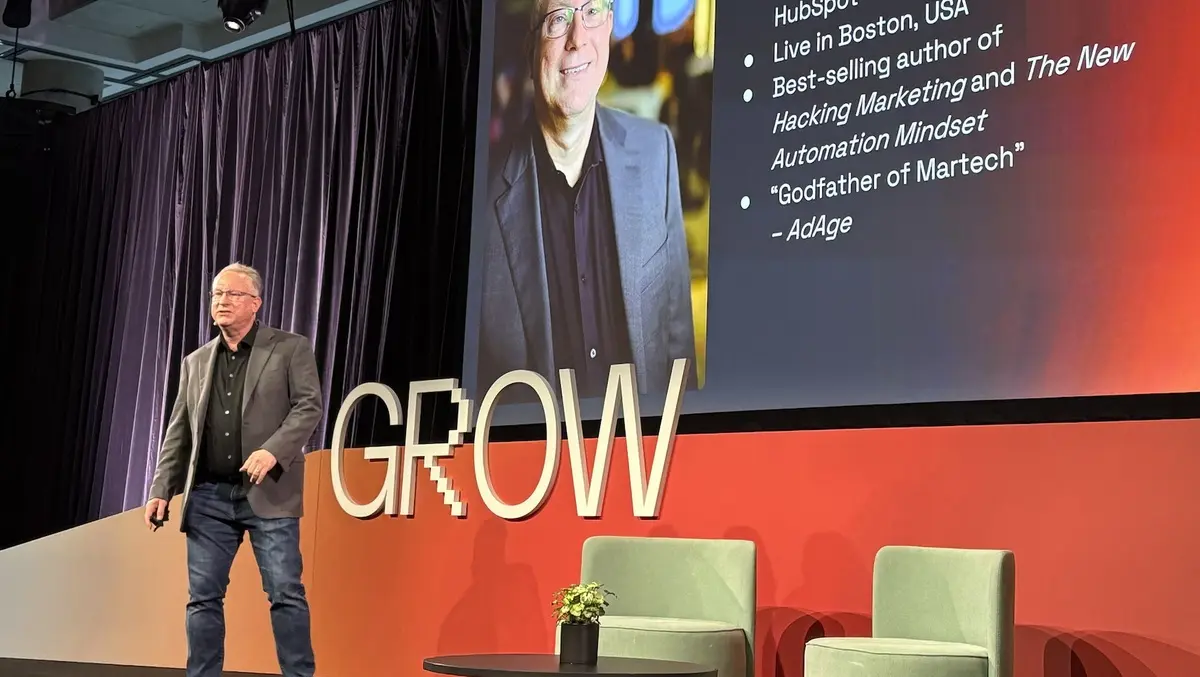
HubSpot on navigating exponential change in the age of AI
At HubSpot's recent GROW ANZ event in Sydney, Scott Brinker, the company's Vice President of Platform Ecosystem, hit the stage to deliver a keynote on the rapidly shifting marketing technology landscape, the acceleration of artificial intelligence (AI), and the organisational challenges that come with keeping pace.
Brinker manages HubSpot's app partner ecosystem, comprising over 1,900 companies, and has spent more than 16 years analysing the evolution of marketing technology as editor of chiefmartec.com.
He recalled starting his marketing technology landscape graphic in 2011, when there were "just 150 commercial solutions."
"We just published the 2025 version of this landscape, and it had over 15,000 solutions globally," he told the GROW ANZ audience.
While some may find that overwhelming, Brinker emphasised that platforms like HubSpot can help cut through the noise.
"There are so many other capabilities out there in the world that you might want to integrate with HubSpot," he noted, explaining how the company's marketplace acts as a curated map of useful technologies.
Racing against the pace of change
Brinker shifted focus to the role AI now plays in marketing, joking that it can help with both writing long emails and summarising them. "This is what we call an infinite productivity loop," he said.
But beneath the humour lies a critical insight. "Technology has been changing at an exponential rate... but these large language models are doubling in performance every seven months," Brinker warned. "We, as human beings – particularly in organisations - do not change at an exponential rate."
He described this mismatch as "the quintessential management challenge of the 21st century." To navigate it, Brinker recommends two strategies: first, be highly intentional about which technologies to adopt, based on customer and operational relevance. Second, cultivate agility. "Some companies are better at changing than others," he said.
"If you're able to just be a little bit more adaptable, a little bit faster than your competitor, that can often be all you need."
AI as a creative partner
Brinker pushed back on the notion that AI generates only generic content, what he called "AI sloth." Instead, he argued that when used thoughtfully, AI can expand creativity. "AI assistants... can actually be phenomenal thought partners in developing ideas," he said.
He cited his own experience at HubSpot, where his team worked with the fintech company Plaid to build a "joint value proposition" agent. By training it with internal resources and frameworks, they could quickly generate field event concepts, email sequences and even Slack messages to engage sales teams.
"We're not field event marketers by trade," he said. "So having the ability to leverage these AI tools to map out something that would be a really compelling opportunity has been absolutely phenomenal."
Beyond the usual creative content
Brinker encouraged marketers to expand their view of what creative AI can do. AI-generated music, he said, can be used in simple workplace moments, like filling the silence before a webinar.
"You might be like, I never would have spent the time or money to do that... but when it's two minutes and costs pennies? Why not?"
AI video tools, too, are becoming more advanced. He pointed to Heygen, a HubSpot app partner, which lets users create realistic video avatars to deliver dynamic scripts in multiple languages.
Even software development, Brinker suggested, is becoming accessible to non-engineers. Using a no-code tool called Lovable, he built a working ROI calculator with sliders for user inputs in under a minute. "There was no editing. This was exactly the series of things that happened," he said.
Brinker called this part of a broader "democratisation" of marketing technology - a movement from high-barrier tools requiring developers, to AI tools that enable front-line marketers to execute ideas themselves.
"Are you as excited and as terrified as I am by that concept?" he asked.
Speed and iteration as competitive edge
AI not only broadens what's possible creatively, Brinker argued - it dramatically accelerates how quickly ideas can be tested.
Quoting Nobel-winning chemist Linus Pauling, he said: "The best way to have a good idea is to have a lot of ideas."
In Brinker's view, rapid experimentation - made feasible through AI and agile processes - is where true innovation happens. "It's very hard to know in advance whether something's going to work," he said. "You have to get it out there and try it."
He pointed to studies showing that teams who follow agile methodologies are further along in deploying AI use cases.
These teams, he said, are not only faster - they're also more satisfied. "AI is the perfect match for agile," he added.
In closing, Brinker encouraged marketers to approach AI not as a threat, but as a catalyst. "We've always had tons of ideas," he said. "The barrier has often been execution. Now, that barrier is dropping fast."


